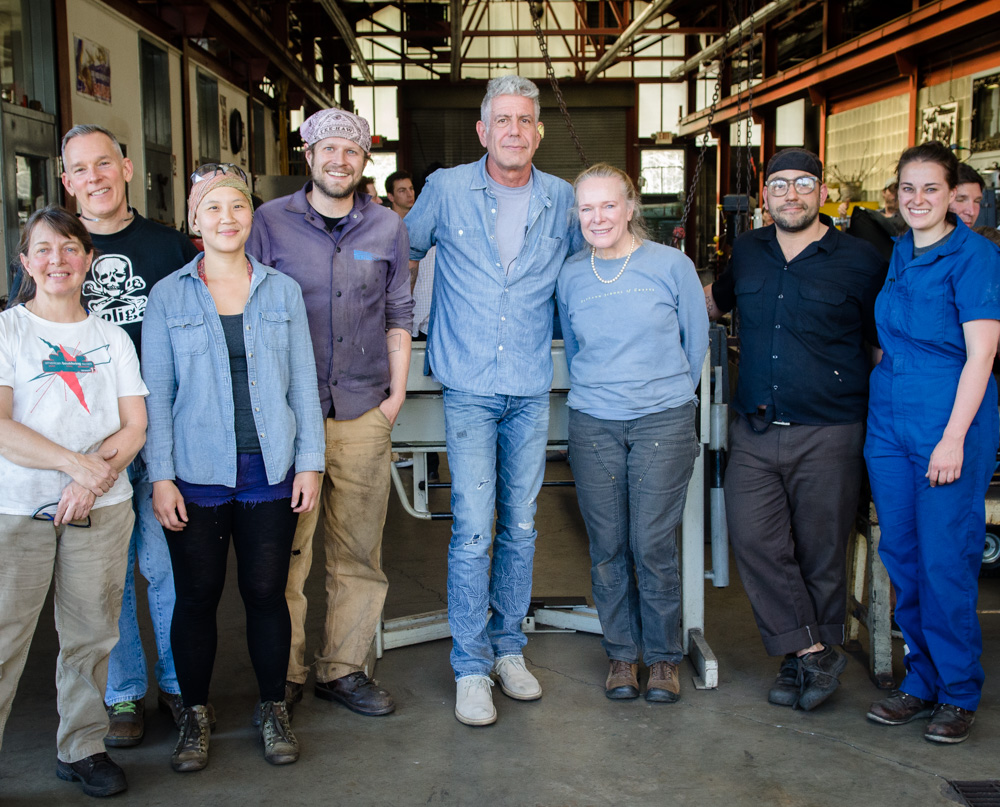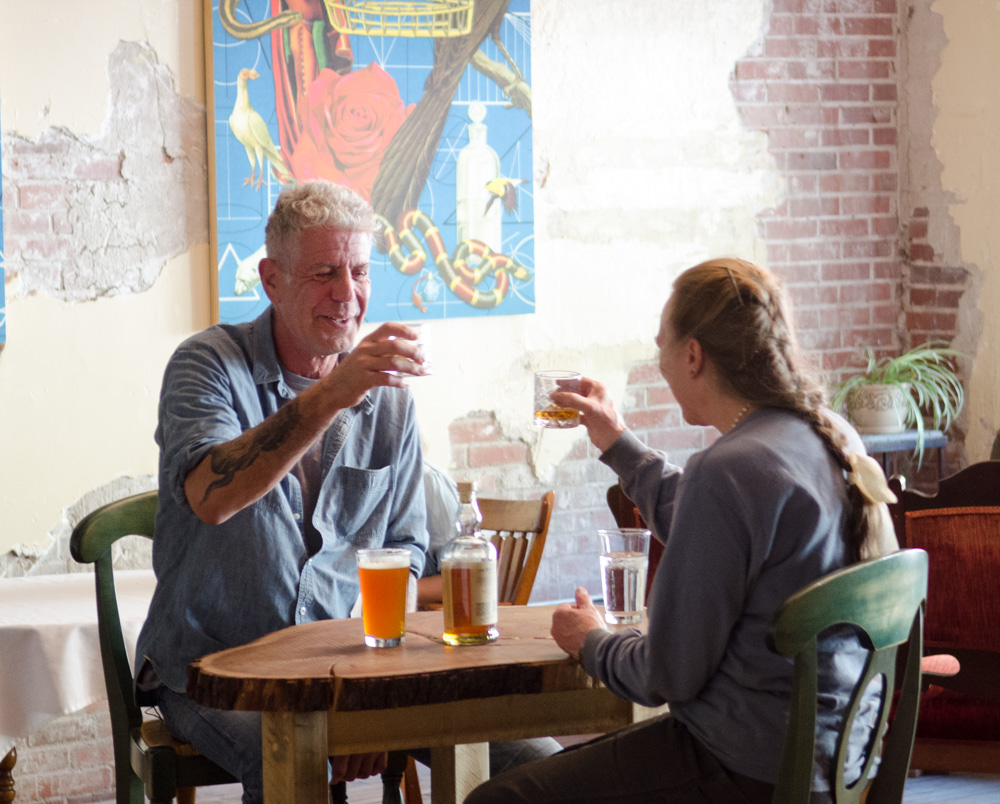
Last Friday, at an otherwise happy, end-of-session show-and-tell, there were some red-rimmed eyes and sad faces as we tried to process the news that Anthony Bourdain had died. Not only that he was gone, but that a man who embodied a full embrace of life had died by his own hand.
We admired Bourdain for the same reasons other people did: his intelligence, his curiosity, his storytelling, his low-tolerance for bullshit, his excellent writing, his great voice, his charismatic persona, and his eager willingness to eat noodles on a street in Taiwan in the middle of night and tell the rest of us all about it. We also admired him for his deep appreciation of skilled making, perfected attention — in other words, craft.
Bourdain was identified mostly with food and travel, but in recent years, thanks to his association with The Balvenie scotch company, he had also become a spokesperson for craft. As part of a generous campaign to identify itself as a craft business, The Balvenie has partnered with the American Craft Council to establish a major craft award. And they created Raw Craft, a series of beautifully produced video profiles of people who make knives, shoes, furniture, saxophones. A 2016 episode featured blacksmith and Penland neighbor Elizabeth Brim. Bourdain hosted the series, engaging these makers in the same kind of intelligent and appreciative conversation he brought to decades of interactions with cooks, chefs, and eaters all over the world.
Elizabeth was teaching a Penland workshop when Bourdain and the production crew spent a day filming her. Half of the piece takes place in Elizabeth’s studio; the other half is at Penland with her students. The producer asked us to keep Bourdain’s visit quiet so they wouldn’t be interrupted by a fan mob, but during the time he was on campus, a steady trickle of admirers passed through with words of appreciation. Bourdain was low-key, friendly, and kind to everyone. He introduced himself to each person by saying, “Hi, I’m Tony.” The last bit of video was shot at a Spoon in Spruce Pine, and when it was finished, he hung out for a couple of hours, chatting with whoever sat next to him and trading opinions with the bartender about the right way to make barbecue. It was clear to everyone that he was a person with high standards but no pretense.

There have been many tributes written in the past few days, including this beautiful piece by his friend Helen Rosner, who writes about food for the New Yorker. In a recent conversation with chef David Chang (also a friend of Bourdain’s) Rosner was asked what advice she’d give an aspiring food writer. Her answer was inspiring: “Don’t become a food writer,” she said. “Just become a writer….Be a really good journalist. Be a really good thinker. Be a person who wants to know how all the threads in the world connect to all the other threads.”
Anthony Bourdain was an excellent writer and a brilliant TV personality. But, above all, he was that person Helen Rosner described: a good thinker who wanted to know how all the threads in the world are connected. Some of us may never understand the way he died, but that won’t keep us from appreciating a life so well lived. Thanks, Tony.
–Robin Dreyer
Here’s the piece shot at Penland.
Also well worth reading is this reflection on Bourdain’s activism.

